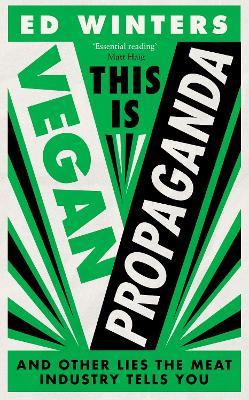More on this book
Community
Kindle Notes & Highlights
by
Ed Winters
Started reading
February 1, 2023
Those who argue in favour of eating animals will often say that because animals are less intelligent, lack the cognitive capabilities of humans and are unable to display the same level of agency and responsibility or engage in social contracts, it is therefore morally acceptable to exploit them. However, do we actually
believe that intelligence should define worth of life or that being more intelligent than someone else gives you the right to harm and exploit them? Disturbingly, this line of thinking could also then be used to justify harming human infants and those who are cognitively impaired, because they also lack these abilities. Thankfully, not only do we still think such people deserve moral consideration, we often give them special consideration because of their lower cognition and agency.
One species we turn into ashes so we can remember and cherish their life, the other we turn into faeces.
Besides, if we truly did believe that intelligence defines worth of life, we would all be vegan, as the plants we consume are quantifiably less intelligent than the animals we eat.
And besides, because of the feed used for animals and the fact that animal farming is the number one cause of rainforest deforestation6 and habitat loss,7 more plants are killed in the production of non-vegan foods than they are vegan foods.
we are essentially saying that our pleasure is more important than any moral consideration.
However, the idea that a farm being nearby means that it’s more ethical clearly doesn’t hold up when you consider that every farm is local to someone. Plus, 98 per cent of farms in the USA are classed as ‘family farms’,
farmers. In the case of sheep, because farmers found those that shed the least amount of wool to be the most desirable and easiest to profit from, over time they continued to selectively breed the animals to the point that they no longer naturally shed their wool, as they had done for millennia. This is why sheep now have to be sheared.
This led to the US government creating a buy-back scheme called the Milk Price Support Program, in which they would purchase surplus storable dairy products, such as butter and cheese, from farmers. This scheme did nothing to address the oversupply of dairy products and instead encouraged it, as farmers knew they would get a constant price for the dairy they produced.
To this day, the US government still buys back dairy products, with the USDA purchasing $50 million of surplus milk in 2018.
Even more alarming, it is estimated that between 2017 and 2018 the amount of surplus cheese grew by 6 per cent, while at the same time per capita milk consumption declined, suggesting that instead of adapting to the changing market, the industry is instead continuing to rely on the taxpayer to subsidise the difference.
One such idea put forward during a project to find sustainable solutions to UK animal farming involved removing the cerebral cortex of chickens and essentially lobotomising them and hooking them up to life-support machines to keep them alive. This really summarises just how far we have gone in devaluing the lives of non-human animals, to the point where lobotomising them is viewed as a potential way of making animal farming more sustainable, rather than no longer eating the animals in the first place. Gene editing is another idea under discussion, with the USDA and the animal agriculture
...more
James Midkiff liked this


